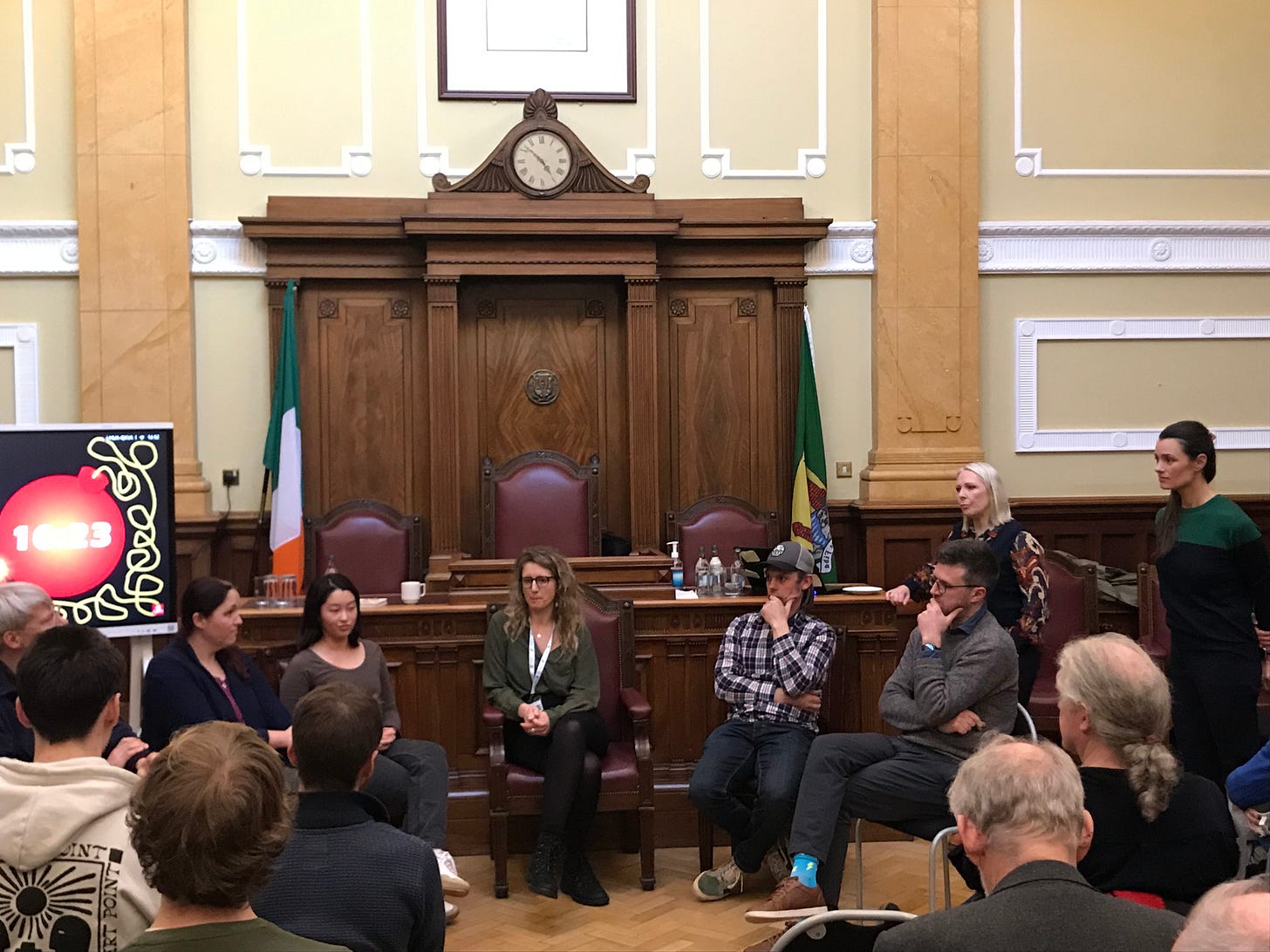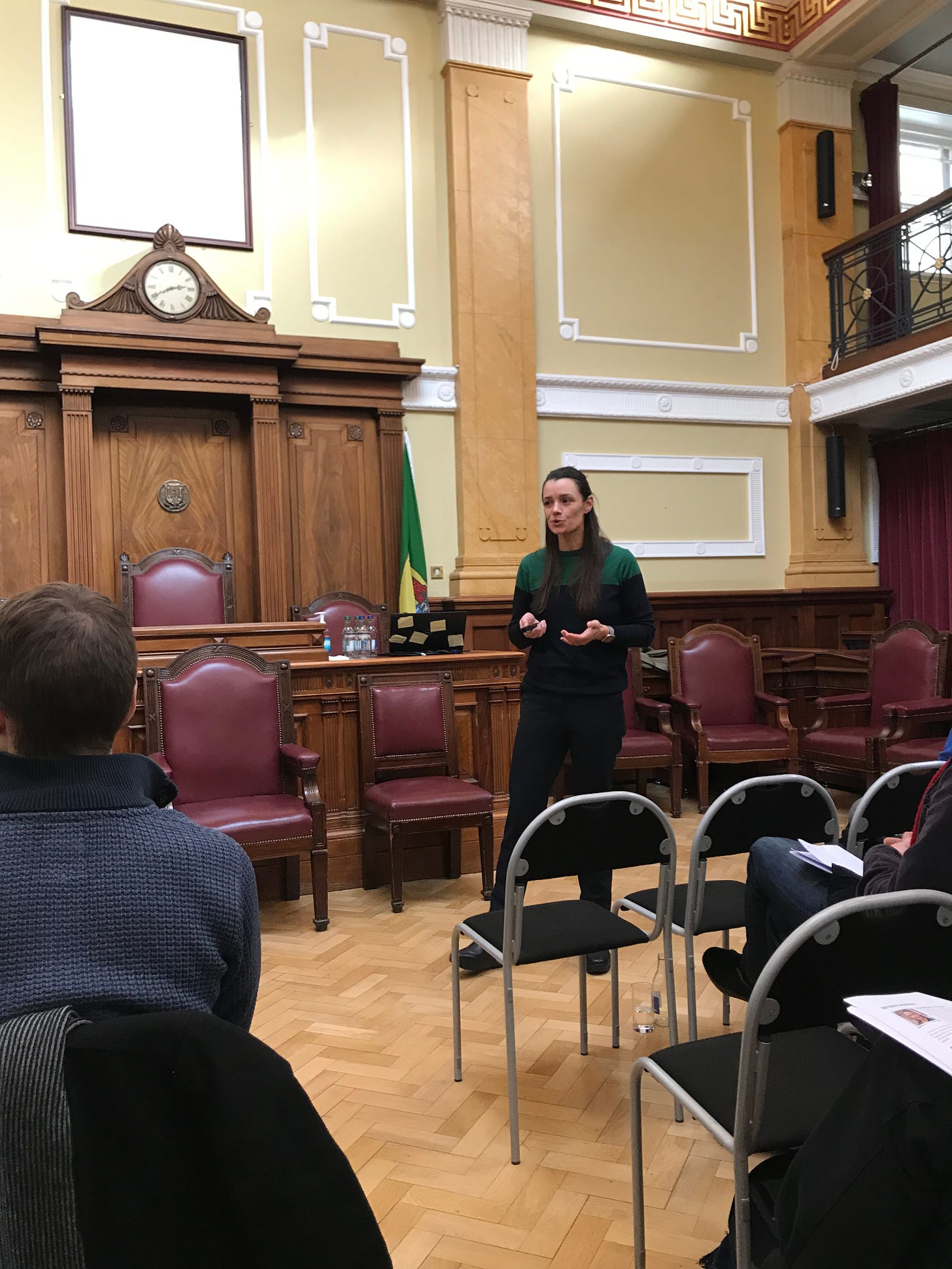Lessons from Amsterdam on making Cork a cycling city
Dr Meredith Glaser, an urban mobility expert from the University of Amsterdam, was the keynote speaker at Cork's first ever academic conference dedicated to cycling.

To get more people cycling, the focus should be less on the bicycle and more on the process of learning and unlearning mobility habits, an urban planning expert has told a symposium about cycling in Cork city.
Dr. Meredith Glaser, an executive director of the Urban Cycling Institute at the University of Amsterdam, was speaking at Socio-Cycle, a two-day symposium designed to examine the changes needed to enable cycling on a massive scale such as in cities like Amsterdam and Copenhagen.
"We are not Amsterdam. We are not the Netherlands. We are Cork, and we have unique challenges when it comes to cycling, such as Patrick's Hill," Dr. Glaser told the symposium which kicked off today at City Hall chambers.
To get to a situation where cycling becomes a dominant form of transport requires linking up with a cross section of society, Dr. Glaser said.
A native of California, Dr. Glaser has been living in Amsterdam for the past ten years. Her keynote featured images of Amsterdam and the Netherlands from the 1970s and 1980s which showed car-clogged streets with nary a bicycle to be seen.
There was "no recipe, no masterplan, no single group who did all the work," Dr. Glaser said, referring to how the Netherlands achived its transport transformation. Instead, there was a willingness from councils, schools, businesses and local communities across the Netherlands to adapt to other ways of travelling, beyond using only the car.
Dr. Glaser emphasised learning and relearning transport habits on the road to bringing about change.
Today 66% of all trips in the centre of Amsterdam are by bike. In contrast, Cork City Council set a target of 4% for cycling as a share of metropolitan area transport for 2028 in the Cork City Development Plan.
Referencing how Paris transformed to a cycling city in the past few years, Dr. Glaser said it requires vision, and the bicycle is just one part of that vision. It requires reframing how we look at public space; roads and streets are not just for cars but rather a public place for a wide range of activities and modes of transports.
Dr. Glaser said the infrastructure for cycling is already there, pointing to streets, which typically make up about a third of land space in cities.
Speaking about Cork city, Dr. Glaser noted that the city that has "done an incredible amount of work" in building cycling infrastructure. She also referenced the shift to cycling in cities across the world throughout Covid 19 lockdowns, saying that it proved cities can adapt and build the infrastructure needed to make cycling a viable alternative.
Socio-Cycle continues on Saturday, February 4 at University College Cork. More details and how to register attendance can be found here.





